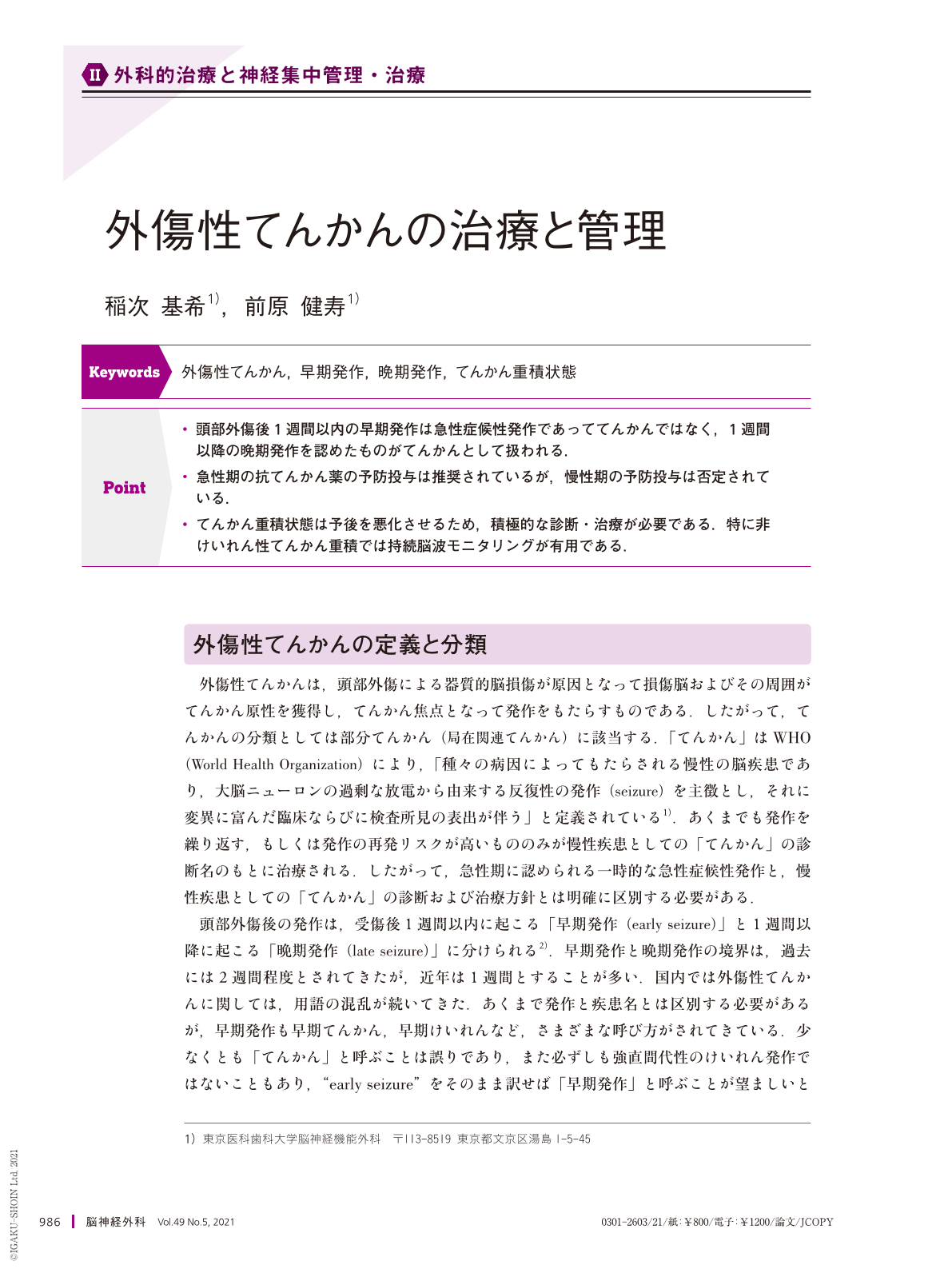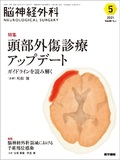Japanese
English
- 有料閲覧
- Abstract 文献概要
- 1ページ目 Look Inside
- 参考文献 Reference
Point
・頭部外傷後1週間以内の早期発作は急性症候性発作であっててんかんではなく,1週間以降の晩期発作を認めたものがてんかんとして扱われる.
・急性期の抗てんかん薬の予防投与は推奨されているが,慢性期の予防投与は否定されている.
・てんかん重積状態は予後を悪化させるため,積極的な診断・治療が必要である.特に非けいれん性てんかん重積では持続脳波モニタリングが有用である.
Post-traumatic seizures and epilepsy are major complication of traumatic brain injury. Early and late and seizures have different implications for prognosis and management. Early seizures, which occur within one week of the trauma, are acute symptomatic events. On the other hand, presence of late seizures indicate epilepsy. Patients with early seizures are treated with anti-epileptic drugs(AEDs)within weeks to avoid status epilepticus, which may increase cerebral blood flow and increase intracranial pressure. Because prophylactic administration of AEDs reduces the incidence of early seizures but not late seizures, it is recommended to limit it to one week. A long-term AED administration is recommended for patients with late seizures, because late seizures represent epilepsy. AED should be selected according to the considerations of age and comorbidity that apply to other individuals with new-onset epilepsy. Since epileptic seizures often cause serious accidents, such as traffic accidents, drowning, burns, falls and others, lifestyle guidance for patients and their families is important.

Copyright © 2021, Igaku-Shoin Ltd. All rights reserved.


